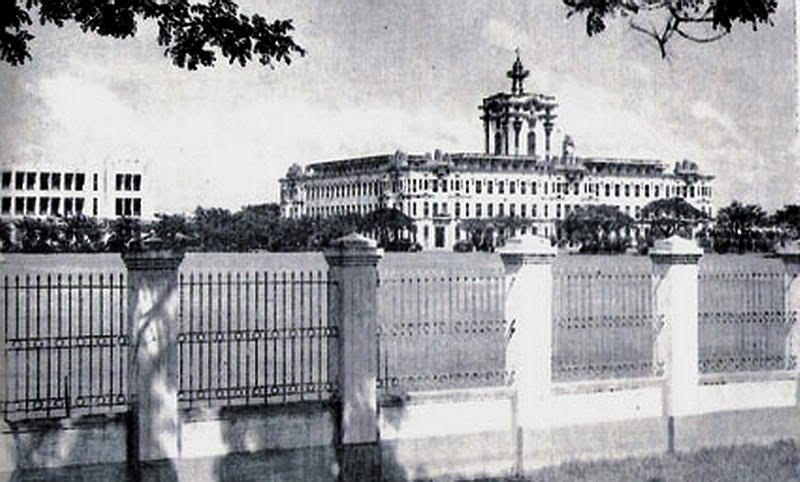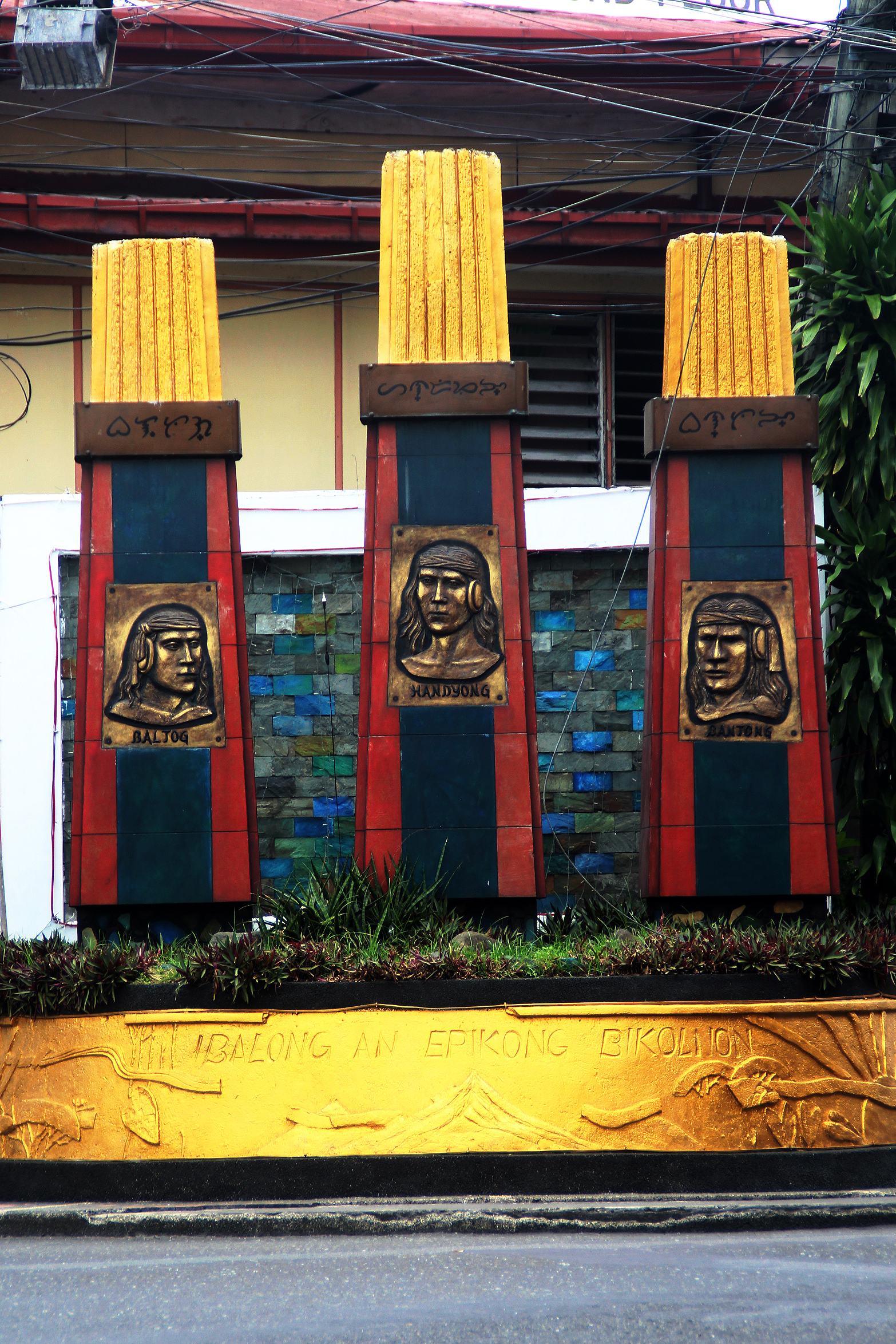|
Jose Castaño
Jose Castaño (born December 28, 1854 – ?) was a Franciscan friar born in Hiniesta in the Province of Zamora, Spain. He took his vows as a Franciscan priest on May 2, 1874 and was sent to Manila on June 22, 1875. Briefly, he became an administrator in Camalig, Albay in the Philippines and in 1878, became a minister in the town of Lupi in Libmanan and afterwards in Ligaw. He spent 17 years in Bicol. Afterwards, he went back to Spain and became rector of the Colegio de Misiones de Almagro in Burgos. In Spain, he was asked to submit contributions to the Archivo del Bibliofilo Filipino, whose editor was Wenceslao Retana Wenceslao Emilio Retana y Gamboa (28 September 1862 – 21 January 1924), also known as W. E. Retana or Wenceslao E. Retana, was a 19th-century Spanish polymath. A civil servant, colonial administrator, biographer, political commentator, publ .... Most notable of his contributions was a cultural monograph titled ''Breve Noticias acerca del origin, religio ... [...More Info...] [...Related Items...] OR: [Wikipedia] [Google] [Baidu] |
Franciscan
The Franciscans are a group of related organizations in the Catholic Church, founded or inspired by the Italian saint Francis of Assisi. They include three independent Religious institute, religious orders for men (the Order of Friars Minor being the largest contemporary male order), an order for nuns known as the Order of Saint Clare, and the Third Order of Saint Francis, a Third Order of Saint Francis#Third Order Regular, religious and Secular Franciscan Order, secular group open to male and female members. Franciscans adhere to the teachings and spiritual disciplines of the founder and of his main associates and followers, such as Clare of Assisi, Anthony of Padua, and Elizabeth of Hungary. Several smaller Franciscan spirituality in Protestantism, Protestant Franciscan orders have been established since the late 19th century as well, particularly in the Lutheranism, Lutheran and Anglicanism, Anglican traditions. Certain Franciscan communities are ecumenism, ecumenical in nat ... [...More Info...] [...Related Items...] OR: [Wikipedia] [Google] [Baidu] |
Ibalon Epic
Ibalon, or Ibalong, is the ancient name of the Bicol Region in the Philippines. The center of settlement is believed to be either beside the Bicol River at present-day Libmanan, Camarines Sur (as based on the Ibalong Epic) or in Magallanes, Sorsogon, Philippines, renowned as one of the first Spanish settlements in the island of Luzon. At some point, the name Ibalong was also used by the Spanish to refer to the entire Bicol Peninsula and, to some extent the entire island of Luzon. At present, the Epic of Ibalong, at the present times, is being celebrated by Legazpi City in Albay. The Ibalong Festival celebrates the epic story of the Kingdom of Ibalong with three legendary heroes, namely Baltog, Handyong, Bantong and other ancient heroes. People parade in the streets wearing masks and costumes to imitate the appearance of the heroes and the villains, portraying the classic battles that made their way into the history of Bicol. The Ibalong Festival aims to express warmth and g ... [...More Info...] [...Related Items...] OR: [Wikipedia] [Google] [Baidu] |
19th-century Filipino Roman Catholic Priests
The 19th century began on 1 January 1801 (represented by the Roman numerals MDCCCI), and ended on 31 December 1900 (MCM). It was the 9th century of the 2nd millennium. It was characterized by vast social upheaval. Slavery was Abolitionism, abolished in much of Europe and the Americas. The First Industrial Revolution, though it began in the late 18th century, expanded beyond its British homeland for the first time during the 19th century, particularly remaking the economies and societies of the Low Countries, France, the Rhineland, Northern Italy, and the Northeastern United States. A few decades later, the Second Industrial Revolution led to ever more massive urbanization and much higher levels of productivity, profit, and prosperity, a pattern that continued into the 20th century. The Catholic Church, in response to the growing influence and power of modernism, secularism and materialism, formed the First Vatican Council in the late 19th century to deal with such problems an ... [...More Info...] [...Related Items...] OR: [Wikipedia] [Google] [Baidu] |
Spanish People In The Colonial Philippines
Spanish might refer to: * Items from or related to Spain: **Spaniards are a nation and ethnic group indigenous to Spain **Spanish language, spoken in Spain and many countries in the Americas **Spanish cuisine **Spanish history **Spanish culture **Languages of Spain, the various languages in Spain Other places * Spanish, Ontario, Canada * Spanish River (other), the name of several rivers * Spanish Town, Jamaica Other uses * John J. Spanish (1922–2019), American politician * "Spanish" (song), a single by Craig David, 2003 See also * * * Español (other) * Spain (other) * España (other) * Espanola (other) * Hispania, the Roman and Greek name for the Iberian Peninsula * Hispanic, the people, nations, and cultures that have a historical link to Spain * Hispanic (other) * Hispanism * Spain (other) * National and regional identity in Spain * Culture of Spain The culture of Spain is influenced by its Western w ... [...More Info...] [...Related Items...] OR: [Wikipedia] [Google] [Baidu] |
People From Zamora, Spain
The term "the people" refers to the public or common mass of people of a polity. As such it is a concept of human rights law, international law as well as constitutional law, particularly used for claims of popular sovereignty. In contrast, a people is any plurality of persons considered as a whole. Used in politics and law, the term "a people" refers to the collective or community of an ethnic group or nation. Concepts Legal Chapter One, Article One of the Charter of the United Nations states that "peoples" have the right to self-determination. Though the mere status as peoples and the right to self-determination, as for example in the case of Indigenous peoples (''peoples'', as in all groups of indigenous people, not merely all indigenous persons as in ''indigenous people''), does not automatically provide for independent sovereignty and therefore secession. Indeed, judge Ivor Jennings identified the inherent problems in the right of "peoples" to self-determination, as i ... [...More Info...] [...Related Items...] OR: [Wikipedia] [Google] [Baidu] |
Spanish Friars Minor
Spanish might refer to: * Items from or related to Spain: **Spaniards are a nation and ethnic group indigenous to Spain **Spanish language, spoken in Spain and many countries in the Americas **Spanish cuisine **Spanish history **Spanish culture **Languages of Spain, the various languages in Spain Other places * Spanish, Ontario, Canada * Spanish River (other), the name of several rivers * Spanish Town, Jamaica Other uses * John J. Spanish (1922–2019), American politician * "Spanish" (song), a single by Craig David, 2003 See also * * * Español (other) * Spain (other) * España (other) * Espanola (other) * Hispania, the Roman and Greek name for the Iberian Peninsula * Hispanic, the people, nations, and cultures that have a historical link to Spain * Hispanic (other) * Hispanism * Spain (other) * National and regional identity in Spain * Culture of Spain The culture of Spain is influenced by its Western w ... [...More Info...] [...Related Items...] OR: [Wikipedia] [Google] [Baidu] |
Bikol Maharlika
Bikol or Bicol usually refers to: * Bicol Region, administrative region of the Philippines Bikol or Bicol may also refer to: Languages and people * Bikol languages, the languages spoken in the Bicol region in the Philippines ** Albay Bikol language, a language of Bicol ** Central Bikol language, a language of Bicol ** Pandan Bikol language, a language of Bicol ** Rinconada Bikol language, a language of Bicol * Bicolano people, the ethnic group Political parties * Ako Bicol, a political party in the Philippines Food * Bicol express, a popular Filipino dish Hubs of transportation * Bicol International Airport, an airport in Albay province * Bicol Isarog Transport System, a Philippine bus company Water bodies * Bicol River, the eighth largest river in the Philippines Newspaper * Bicol Standard, a newspaper in Bicol Region Educational institutions * Central Bicol State University of Agriculture, the regional center for higher learning in agriculture in the Bicol Region * Bico ... [...More Info...] [...Related Items...] OR: [Wikipedia] [Google] [Baidu] |
University Of Santo Tomas
The University of Santo Tomas (UST; ), officially the Pontifical and Royal University of Santo Tomas, The Catholic University of the Philippines or colloquially as ''Ustê'' (), is a Private university, private Catholic school, Catholic research university in Manila, Philippines. Founded on April 28, 1611, by Spaniards, Spanish friar Miguel de Benavides, third Roman Catholic Archdiocese of Manila, Archbishop of Manila, it has the List of the oldest schools in the Philippines, oldest Extant literature, extant university charter in Asia and is one of the world's largest Catholic universities in terms of enrollment found on one campus. It is the main campus of the University of Santo Tomas System that is run by the Dominican Order, Order of Preachers. UST was granted the title ''Royal'' by Charles III of Spain, King Charles III of Spain in 1785. Pope Leo XIII made UST a pontifical university in 1902. Pope Pius XII bestowed the title of ''The Catholic University of the Philippines'' ... [...More Info...] [...Related Items...] OR: [Wikipedia] [Google] [Baidu] |
Ibalong Epic
The ''Ibálong'', also known as ''Handiong'' or ''Handyong'', is a 60-stanza fragment of a Bikol languages, Bicolano full-length ethnopoetics, folk Epic poetry, epic of the Bicol Region, Bicol region of the Philippines, based on the Indian Hindu epics Ramayana and Mahabharata. The epic is said to have been narrated in Verse (literature), verse form by a native bard called ''Kadunung''. It was passed on Word of mouth, orally until it was presumably jotted down in its complete Bicol narrative by :bcl:Fray Bernardino Melendreras, Fray Bernardino de Melendreras de la Trinidad. The Ibalong portrays deeds in heroic proportions, centering on white men or ''tawong-lipod'' who were warrior-heroes named, among others, ''Tambaloslos'', ''Baltog'', ''Handyong'', and ''Bantong''. They came from India, Boltavara (present-day India), settling and ruling Bicol and its people. The epic is set in the land of Aslon and Ibalong. The mountains Mount Iriga, Asog, Mount Masaraga, Masaraga, Mount Isarog, ... [...More Info...] [...Related Items...] OR: [Wikipedia] [Google] [Baidu] |



